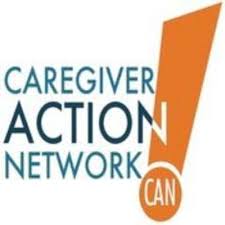What Do You Know About Lupus?
By Tai Prohaska, Allsup manager of Strategic Alliances
May is Lupus Awareness Month, and boy, does this disease need it.
According to the Lupus Foundation of America (LFA), 73 percent of Americans between 18-34 have either not heard about lupus or know little or nothing about lupus beyond the name. To put that in perspective, there are approximately 400,000 Americans living with multiple sclerosis and about 1 million living with Parkinson’s disease.
The Lupus Foundation of America wants you to “Get to KNOW LUPUS.” Allsup team members probably know more than most Americans because we help individuals with lupus obtain Social Security Disability Insurance benefits if they cannot continue working. Allsup is pleased to support LFA chapters throughout the country.
“Lupus is a chronic autoimmune disease that is both mysterious and cruel,” said LFA Heartland patient services manager Rosemary Chustak.
“With lupus, something goes wrong with the immune system resulting in the body attacking and causing damage to itself. It is difficult to diagnose as symptoms are different from person to person, imitate the symptoms of other illnesses and symptoms come and go.”
While lupus can strike anyone at any time, 90 percent of people living with lupus are females. Women of color are at an especially high risk. Hispanic, Asian and Native American populations also have an increased risk. Lupus usually develops between the ages of 15 and 44. Although symptoms range from mild to life threatening, with proper diagnosis and treatment, the disease is now more manageable than in years past.
Common symptoms include joint pain, headaches, anemia, edema, pleurisy, photosensitivity, hair loss, abnormal blood clotting, mouth or nose ulcers, skin rashes, overwhelming fatigue and fevers. For some people with lupus, symptoms can be debilitating, even to the point of forcing them to stop working.
I was at the St. Louis Walk to End Lupus Now last weekend and I talked with people about the challenges they face living with lupus, including the struggle to keep working. Many who had to stop working had filed for Social Security Disability Insurance benefits and, like most who apply, they were denied benefits. They were looking for a better way to apply for SSDI or appeal their denial.
I was happy to tell them about empower by Allsup®, a free online tool that helps people determine their likelihood of obtaining SSDI benefits, and improves their chances of getting approved if they are eligible.
One of the most common things people say when I tell them about Allsup’s services is, “I wish I had known about you earlier.”
Lupus thrivers, share this blog and help me spread the word.
Allsup
Related Articles

Uncategorized
Helping Family Caregivers With What They Need to Know

Uncategorized
Understanding MS and Disability Benefits

Uncategorized
BIA-MO Gets Real about Brain Injury Awareness

